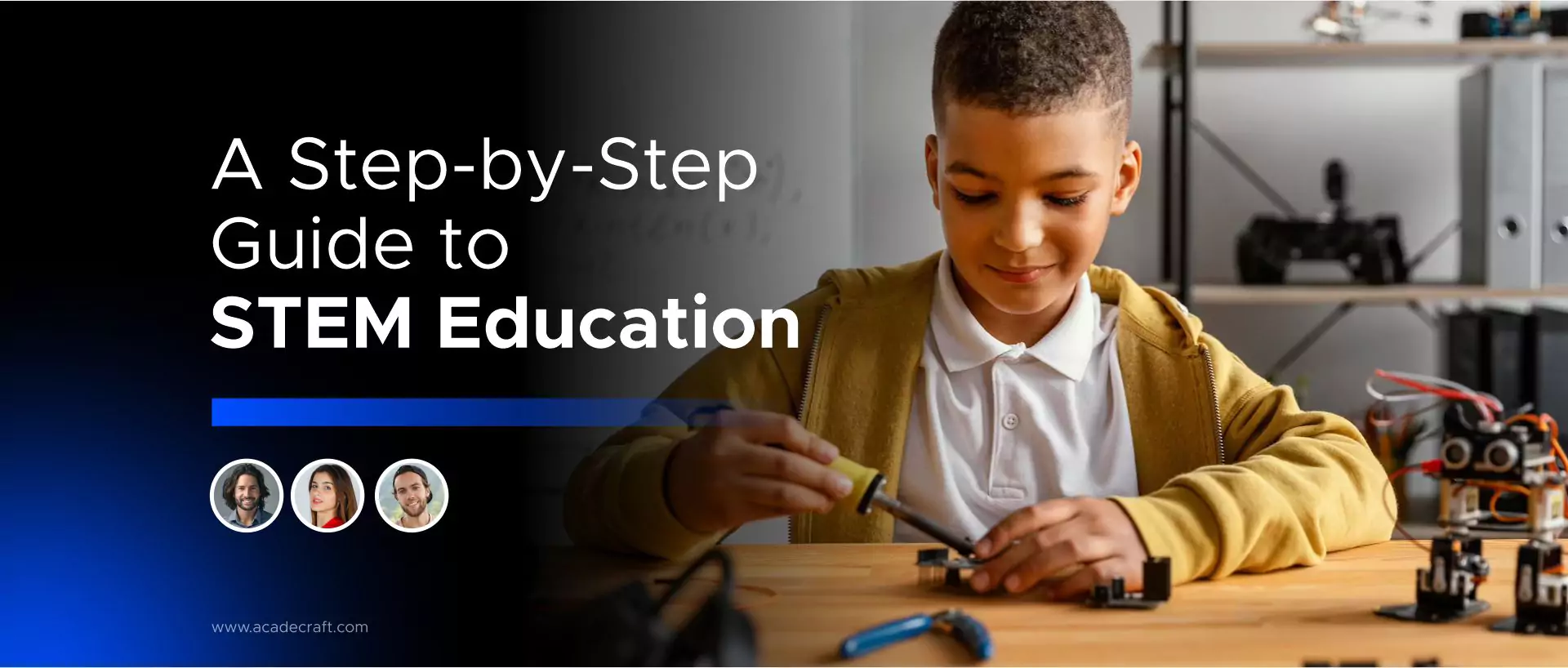Admis Asia: Insights into the Dynamic Asian Market
Exploring the latest trends and developments across Asia.
STEMming the Tide: Why Every Child Needs Science and Math in Their Toolkit
Discover why science and math are essential for every child's toolkit. Empower their future with STEM skills today!
The Importance of Early STEM Education: Building a Strong Foundation for Future Innovators
The importance of early STEM education cannot be overstated, as it lays a crucial foundation for future innovators. By introducing science, technology, engineering, and mathematics concepts at a young age, children develop critical thinking and problem-solving skills that are essential in today’s rapidly evolving world. Research shows that early engagement in STEM activities not only enhances cognitive abilities but also fosters creativity and collaboration. Moreover, engaging in hands-on learning experiences can spark a child's interest in STEM fields, encouraging them to explore further and potentially pursue careers in these vital areas.
Furthermore, the integration of STEM education into early childhood curricula can help bridge the gender and diversity gaps that persist in these fields. By providing equal access to quality STEM programs, educators can inspire a broader range of students to consider STEM-related careers. Implementing inclusive teaching strategies ensures that every child, regardless of their background, feels empowered to explore and excel in STEM disciplines. Investing in early STEM education is not just a trend; it is a significant step towards nurturing a diverse and skilled workforce for the future.

How Science and Math Skills Empower Children in Everyday Life
Science and math skills play a crucial role in empowering children to navigate everyday challenges with confidence. By understanding basic scientific principles, children learn to observe, question, and analyze the world around them. For example, engaging in simple experiments at home fosters critical thinking and problem-solving abilities, allowing kids to understand cause and effect. According to Science.org, early exposure to science enhances cognitive development and increases curiosity, which are essential traits for lifelong learning.
In addition to science, mathematics equips children with essential tools for daily life. Skills such as counting, measuring, and estimating form the foundation for budgeting, cooking, and even shopping. Children who are proficient in math are better prepared to tackle real-world problems. For instance, understanding fractions is critical when following a recipe or determining discounts during a sale. The National Math Council highlights that these skills create a sense of competence and independence, ultimately leading to better life decisions and opportunities for success.
What Are the Benefits of Integrating STEM into Early Childhood Education?
Integrating STEM (Science, Technology, Engineering, and Mathematics) into early childhood education offers numerous benefits that lay the groundwork for children's future academic success. First and foremost, it promotes critical thinking and problem-solving skills. According to research from the Gordon Institute for STEM Education, engaging children in hands-on activities allows them to explore concepts actively rather than passively absorbing information. This experiential learning framework encourages curiosity and creativity, essential components for innovation.
Furthermore, early exposure to STEM subjects fosters a love for learning, which can lead to greater academic achievement in the long run. Children who engage with STEM-related activities are more likely to develop a positive attitude toward science and math, according to Brookings Institution. This early enthusiasm paves the way for lifelong learning and helps to close the achievement gap often observed in underrepresented demographics. By incorporating STEM lessons into early education, we can cultivate the next generation of innovators and problem-solvers.